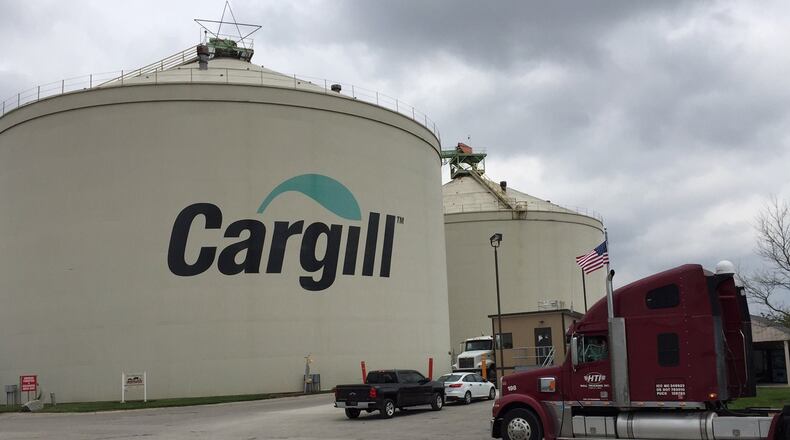Related: Salt contamination threatens Camden water supply
The lawsuit is against Cargill Inc., Central Salt LLC and three companies operated by one corporation — R. Good Rentals LLC, Good Rail and Truck Transfer Inc. and R. Good Enterprises LLC.
The Ohio Environmental Protection Agency in August 2009 notified Camden business owner Rod Good that large, uncovered salt piles on his property posed a potential threat to the village’s drinking water and runoff from the piles could contaminate surface streams, dry stream beds and eventually the aquifer.
The village discovered that salt from a pile located and managed by Central Salt and Cargill on property owned or managed by the Good defendants had “migrated in large quantities from the pile, through surrounding soils, and into the ground water feeding into wells that were the sole source of the village’s water supply at concentrations significantly exceeding the state and federal drinking water standards,” the lawsuit says.
The Good Companies agreed to store Cargill’s salt “lawfully and responsibly,” said Sonya Roberts, president of Cargill Sal, noting that her company did not own or operate the property. Once Cargill discovered that Good was not complying with Ohio environmental laws, they story storing their salt on the property, she said.
“We’re working with Central Salt and the Good Companies to invest in environmental solutions to clean up the Good Companies’ property,” Roberts said in a statement.
Related: Cleaning up ‘forever’ chemicals in drinking water not easy task
Calls to Central Salt LLC and the Good Companies from the Dayton Daily News were not returned Tuesday afternoon. Camden Mayor Karen Moss declined to comment.
In August 2010, the state environmental agency launched an in-ground investigation after complaints from residents about the taste of the water. Water in one of the village’s three wells had too much salt and brine for drinking, the agency said at the time. A second well that was in use was also experiencing higher salt levels, which continued to rise. The village stopped using the third well to avoid potential contamination.
“At the rate that the salt is rising, they could lose that whole well field within six weeks,” an OEPA representative said at the time.
Camden, which provides drinking water for more than 2,500 people, has since acquired a new well field. The cost associated with locating and purchasing a new field via eminent domain, testing, designing and installing a new testing system amounts to about $3.6 million, according to the lawsuit.
Related: Camden must connect to water district, Ohio EPA says
In 2009 the operating cost for the well field and water treatment system was nearly $134,000. For fiscal year 2018, the cost was about more than $288,000. As a result of the higher operating cost, residents’ water rate jumped from about $24 per month to more than $52 per month during that same period, according to the court documents.
About the Author
